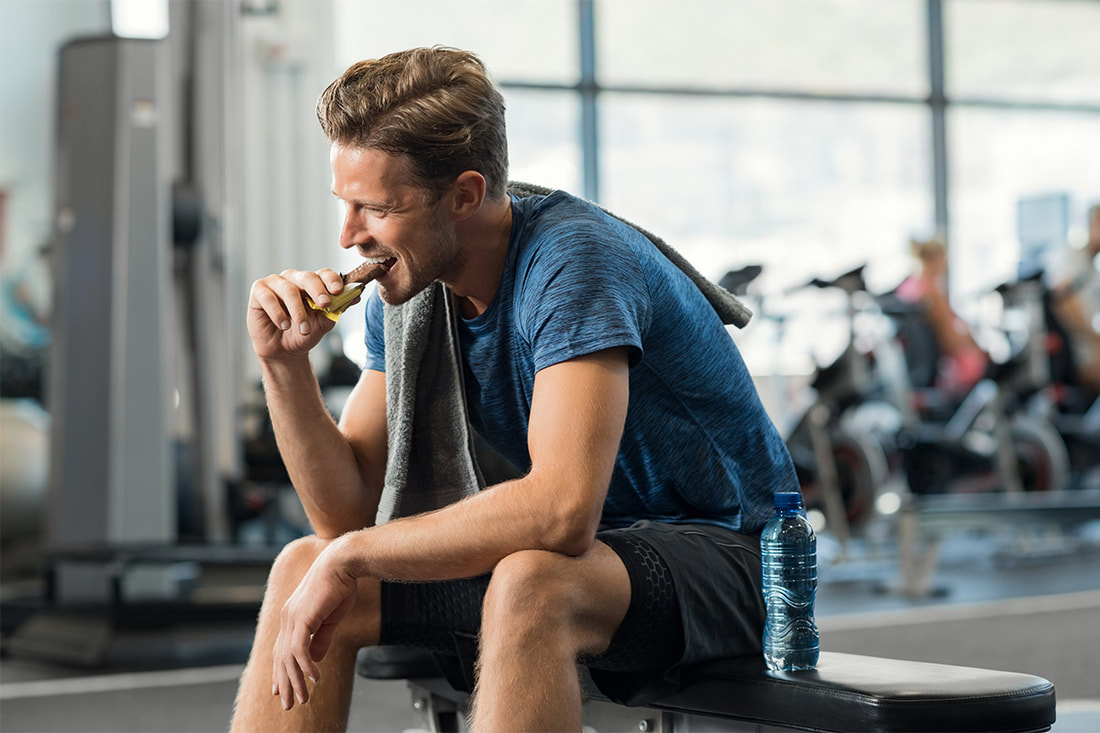|
Gearing up for a serious exercise session includes pre-workout foods and also taking care of post-workout needs by preparing something healthy and interesting. The calories burnt, sweat dispensed and energy lost definitely calls for munching upon something that fills the tummy. People have the theory that increase in physical activity increases appetite. But most people eat less after a workout session which is extremely surprising and makes us skeptical about our body’s condition. Individuals love to plan when it comes to something like physical activity or a game. They plunge into the shopping mood purchasing athleisure wear, comfortable shoes and other stuff. People even try storing some energy bars or energy drinks fearing fatigue or exhaustion post the exercise session. Planning on clothes and accessories gives you an upper hand when it comes to comfort and preparation but packing your bags with food is unnecessary. Scientists have found that exercising decreases your appetite and does not make you hungrier.
Exercise Prevents Appetite A group of researchers analyzed the effects of exercising on the body after a workout. Incidentally, one of the researchers was a fitness enthusiast who ran three times a week (45 minutes each time) but was always left with decreased craving than usual. His theory is that individuals experience a surge in body heat while exercising which in turn signals the brain that appetite needs must reduce. The process is compared to what happens in the body when we eat very spicy foods. Consuming spicy food containing hot chili peppers increases body temperature and decreases appetite because these peppers contain a compound called capsaicin that interacts with sensory receptors (TRPV1) in the body inducing a sensation of being hot and flushed. There are few instances where capsaicin has decreased appetite which makes it a potential compound for research relating to weight loss. Applying the same concept to exercising, the researchers wanted to explore whether the increased body heat experienced after exercising might fail from stimulating neurons in brain responsible for homeostasis regulating eating process. To get an answer, the researchers focused all their attention on a set of neurons called as proopiomelanocortin (POMC) that are involved in appetite suppression. These avoid brain cells from being exposed to serious fluctuations in brain plasma composition. In order to check whether the POMC brain cells respond to body temperature fluctuations too, research was conducted on mouse hypothalamus tissue. The mouse’s tissue was exposed to both capsaicin and heat to check whether the cells respond to these stimuli. Almost two-thirds of the cells responded to both the stimuli. When the mice’s arcuate nuclei were exposed to capsaicin the creatures ate less food. The mice were also made to exercise on a treadmill for 40 minutes thereby creating similar environment and body temperature. The animal’s body temperature shot up and reached a plateau after 20 minutes, but body heat stayed on the upper end for more than an hour during which the mice’s appetite decreased. It was seen that the set of animals that took up exercising ate 50% less than the rest who did not exercise. Also, mice whose TRPV1 receptors were suspended experienced no change in appetite after the treadmill test. This clearly proves that body temperature regulates eating pattern similar to the way in which hormones and nutrients affect us. Habits Affect Results Repeatedly doing a task makes it easier to perform, repeatedly reading something familiarizes us with the subject and likewise, repeatedly stimulating receptors makes them less sensitive. When someone is repeatedly exposed to vigorous-intensity exercise the TRPV1 receptors become less sensitive. This makes a common man or a sports person practicing for an event feel as hungry as a wolf after the event or practice session. Get ideas on how to remain energetic before, during and after working out with these pre- and post-workout food list available at www.firsteatright.com. Hence there is more research needed in this field to completely understand the process that happens during and after exercising. Maybe more mice and more science can remind us of hunger signs. We have also come across an important understanding that body temperature impacts feeding pattern, and this exists as a field that can be further explored for potential weight loss strategies. Comments are closed.
|
AVOID FRAUD. EAT SMART.+91 7846 800 800
AuthorDietitian & Nutritionist Dr. Nafeesa Imteyaz. Archives
July 2024
Categories
All
Dr. Nafeesa's Blog @blogspot |
- Home
- Written Testimonials
- Consult
- Clinics
- Blogs
-
Diet & Nutrition
- Diabetes Reversal
- IVF IUI not needed for PCOS PCOD Infertility
-
Medical Nutrition
>
-
Disease & Conditions
>
- Infertility | PCOS
- Diabetes Mellitus
- Cholesterol
- Hypothyroid
- Kidney Problems
- Hypertension
- Cardiovascular Diseases
- Liver Diseases
- Gastro intestinal disorder
- Cancer
- Metabolic Disorders
- Orthopedic Disorders
- Eating Disorders
- Dietary Recall
- Weight Record Filled By Clients
- Online Payment Transaction Details
- Online Clients Weight Check Form
- Our Program Package Service Charges
- Weight Record 2017 Clients
- Measurements sent by Clients
- Terms & Conditions Of Payment
- Thanks. Your Form is Submitted
- Video Testimonials
- Lifestyle & Wellness
- Lifestyle & Wellness Blog
- Allergy & Intolerance
- Weight Loss / Gain
- Weight Loss / Slimming Blog
-
Disease & Conditions
>
- Life Cycle Nutrition >
- Sports Nutrition >
- Integrity in Nutrition
- Knowledge Centre
© COPYRIGHT 2022. ALL RIGHTS RESERVED. FRST HEALTHCARE PVT LTD.
Dr. Nafeesa Imteyaz of First Eat Right clinic, is the Best Dietitian Nutritionist in Bangalore. Best Dietitian Nutritionist in Pune. Best Dietitian Nutritionist in Hyderabad. Best Dietitian Nutritionist in Chennai. Best Dietitian Nutritionist in Mumbai. Best Dietitian Nutritionist in Delhi. Best Dietitian Nutritionist in Kolkata.


